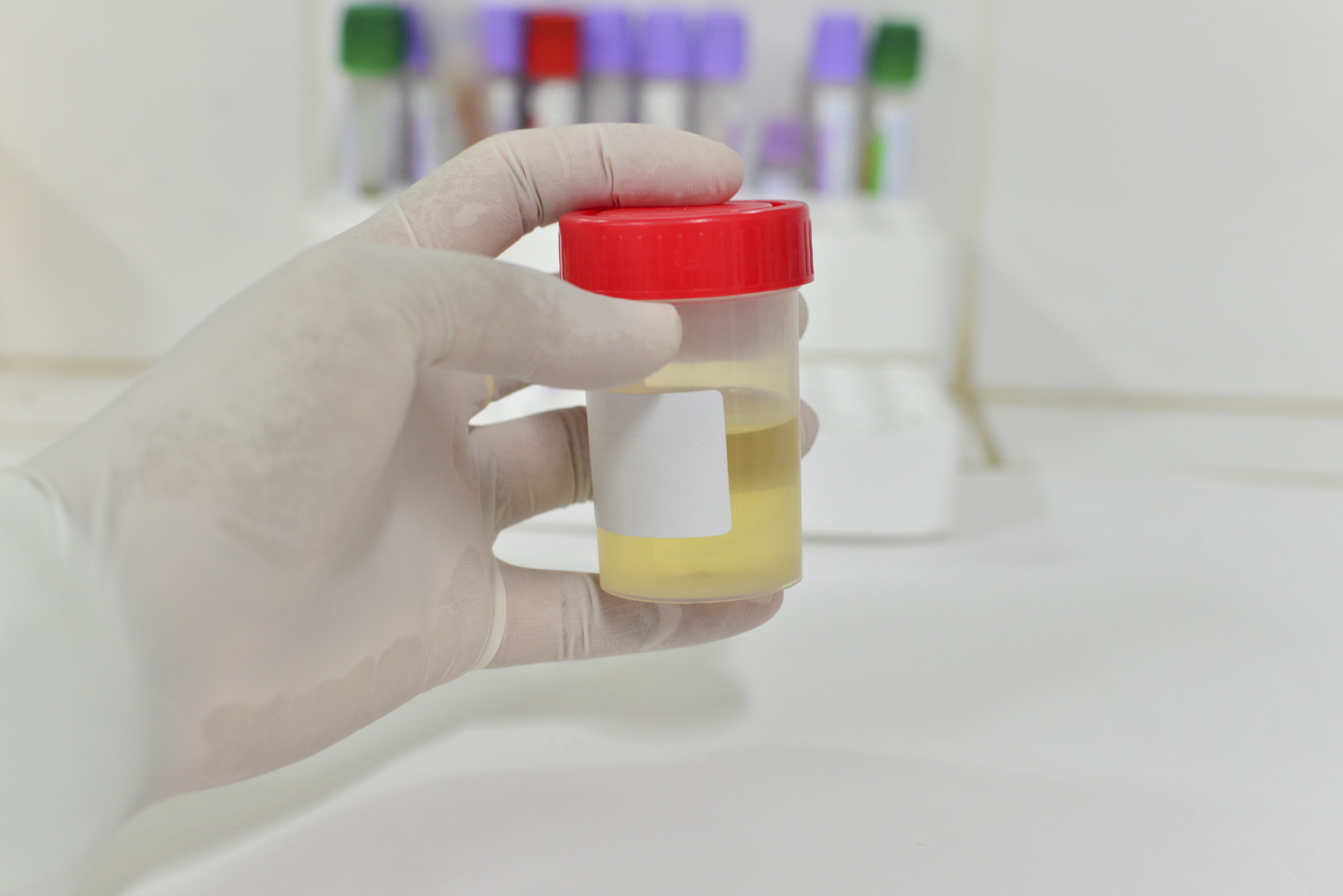
Trying to lose weight? Be careful not to lose muscle

Is your skin problem actually an autoimmune condition?

People with diabetes face higher risk of hearing loss

Antibiotic-free fixes for recurrent UTIs

Musculoskeletal syndrome of menopause: When menopause makes you ache all over

When can older women stop getting mammograms?

To lose weight, especially harmful belly fat, combine diet and exercise

Can men hold off on treating recurring prostate cancer?

The 7 types of rest and why we need them all

What are the early warning signs of cervical cancer?
Prostate Cancer Archive
Articles
High-dose, shorter radiation therapy effective for some prostate cancer
In the journals
Men with intermediate-risk prostate cancer may benefit more from a shorter duration of hypofractionated radiation therapy (HRT) than from standard radiation therapy. With both types of radiation therapy, the total amount of radiation is given in multiple sessions over a set period. Compared with standard radiation therapy, HRT uses larger doses over a shorter period of time.
A study in the Nov. 4, 2017, European Urology Focus analyzed data of 3,553 men with prostate cancer, 65% of whom had intermediate-risk prostate cancer. The men were randomized to get either a one-month program of HRT or the standard radiation treatment regimen given over two months. After an average of five to six years, the intermediate-risk men who had HRT were less likely than men who got standard radiation therapy to have their prostate cancer return.
Men may want to rethink surgery for early-stage prostate cancer
In the journals
Observation only may be the best medicine for men with early-stage prostate cancer, suggests a 20-year study published online July 13, 2017, by The New England Journal of Medicine. Early-stage prostate cancer means the cancer is small, confined to the prostate gland, and can only be detected with a biopsy.
Researchers randomly assigned 731 men, average age 67, with localized prostate cancer to receive either surgery or observation only. At the 20-year follow-up, 62% of the men who had prostate cancer surgery had died of other causes, while only 7% died from prostate cancer. In comparison, 67% of the men assigned to observation died from other causes and 11% from prostate cancer. The absolute differences in mortality were not significant.
Androgen deprivation therapy may not increase risk of Alzheimer’s disease after all
In the journals
A study of almost 31,000 men whose prostate cancer had not spread found that the use of androgen deprivation therapy (ADT) was not associated with a higher risk of Alzheimer's disease. This counters previous studies that suggested a possible link. The results were published in the January 2017 Journal of Clinical Oncology.
ADT is used in prostate cancer treatment to eliminate testosterone, since the hormone can fuel the disease. Testosterone levels also are traditionally lower in men with Alzheimer's compared with control groups, which suggests there may be a connection between lowering testosterone and an increased risk of Alzheimer's. Previous studies that have explored this connection found that a low testosterone level caused by ADT was associated with a higher probability of developing Alzheimer's. But these studies often covered a shorter time period — for instance, one year or less — and it is doubtful that men were on ADT long enough to cause Alzheimer's.
New way to use PSA test might identify men who need aggressive prostate cancer treatment
In the journals
Prostate-specific antigen (PSA) tests are used to help identify men who may have a higher risk of prostate cancer. But a study published online Jan. 12, 2017, by JAMA Oncology, describes a new way to use PSA that may pinpoint men who are likely to die early from prostate cancer that returns after initial treatment.
The researchers used data from a randomized trial of 157 men whose localized cancer was treated with either radiation alone or radiation along with six months of androgen deprivation therapy. The men were then followed for 16 years.
Testosterone, prostate cancer, and balding: Is there a link?
We can thank the Greeks for the name doctors apply to male hormones. Androgen comes from the words meaning "man-maker," and it's a well-chosen term. Testosterone is the most potent androgen, and it does make the man. It's responsible for the deep voice, increased muscle mass, and strong bones that characterize the gender, and it also stimulates the production of red blood cells by the bone marrow.
In addition, testosterone has crucial, if incompletely understood, effects on male behavior. It contributes to aggression, and it's essential for the libido or sex drive, as well as for normal erections and sexual performance. Testosterone stimulates the growth of the genitals at puberty, and it is one of the factors required for sperm production throughout adult life.
New approach identifies returning prostate cancer
Researchers have mapped patterns of prostate cancer recurrence following surgery, which may help doctors find the best way to treat men whose cancer has returned. About 30% of men who have prostate cancer surgery will have a recurrence, according to the study in the Journal of Urology.
Shortened radiation therapy may help with low-risk prostate cancer
A new study found that men with low-risk prostate cancer may be able to undergo a shortened course of radiation therapy that cuts treatment by weeks and offers similar outcomes and quality-of-life results as longer treatment courses.
Meditation may ease anxiety from active surveillance
A mindfulness-based stress reduction program (MBSR) can help control anxiety among men who follow active surveillance for prostate cancer. The wait-and-see approach can make men feel so uneasy about their condition that they opt for treatment with radiation therapy or surgery when it is unnecessary. MBSR not only eases anxiety levels, but also inspires men to be more proactive about their health and adopt lifestyle changes like a proper diet and exercise.
Adapting to life after cancer
Once you've completed treatment, adjusting to a "new normal" can be challenging.
Image: RuslaGuzov/ Thinkstock
Completing cancer therapy can feel like a graduation. You've done some hard work, it's paid off, and you may be ready to celebrate. But saying goodbye to treatment can arouse many of the emotions and uncertainties associated with beginning a new chapter in life.
Dr. Larissa Nekhlyudov is a general internist who works with cancer survivors at two Harvard affiliates, Brigham and Women's Hospital and Dana-Farber Cancer Institute. She acknowledges that cancer survivors have a lot to deal with. "Once you've had your final chemotherapy infusion or swallowed the last pill, you may find yourself facing a new set of challenges—monitoring yourself for signs of recurrence, getting recommended follow-up care, adjusting to the long-term effects of treatment, psychologically adapting to normal life, and working to stay in good health," Dr. Nekhlyudov says.
New urine test predicts high-grade prostate cancer
Researchers believe that a non-invasive screening test that can identify genetic markers for high-grade prostate cancer in urine may eventually reduce the number of prostate biopsies needed. However, experts also caution that while the number of non-invasive tests for prostate cancer diagnosis is growing, these are still early days in their development.

Trying to lose weight? Be careful not to lose muscle

Is your skin problem actually an autoimmune condition?

People with diabetes face higher risk of hearing loss

Antibiotic-free fixes for recurrent UTIs

Musculoskeletal syndrome of menopause: When menopause makes you ache all over

When can older women stop getting mammograms?

To lose weight, especially harmful belly fat, combine diet and exercise

Can men hold off on treating recurring prostate cancer?

The 7 types of rest and why we need them all

What are the early warning signs of cervical cancer?
Free Healthbeat Signup
Get the latest in health news delivered to your inbox!
Sign Up




